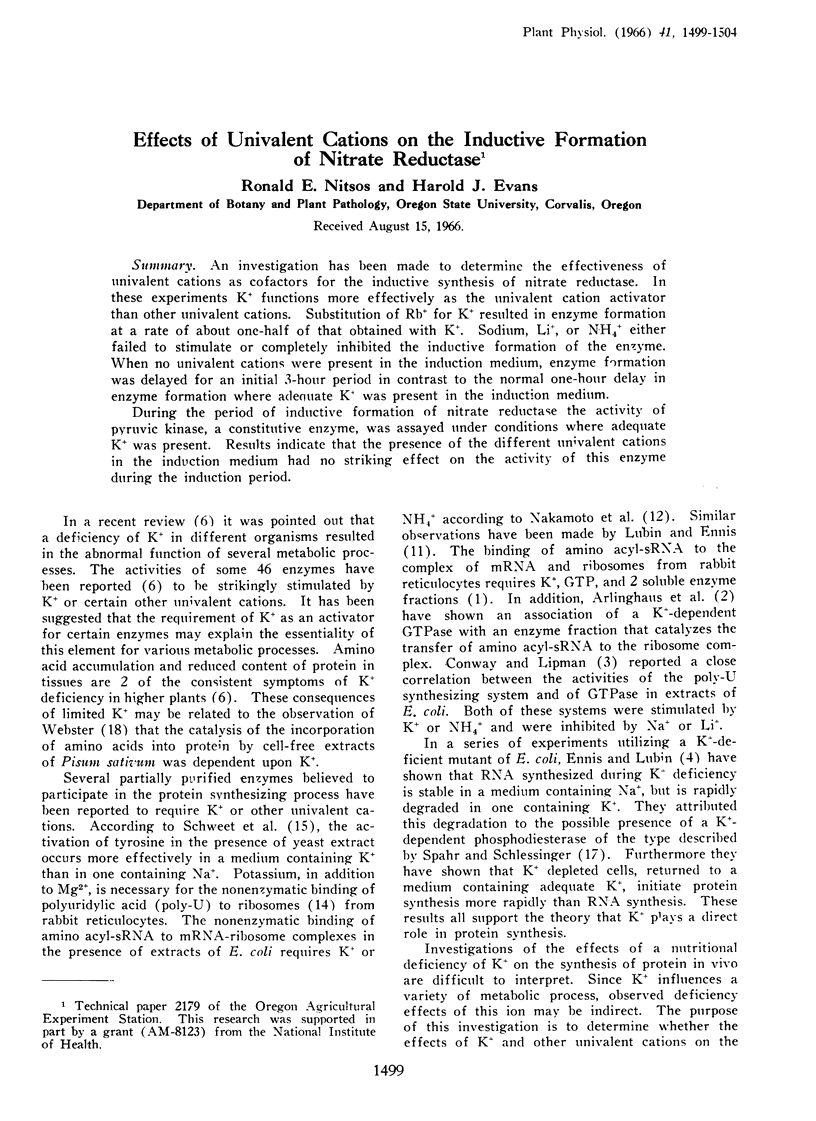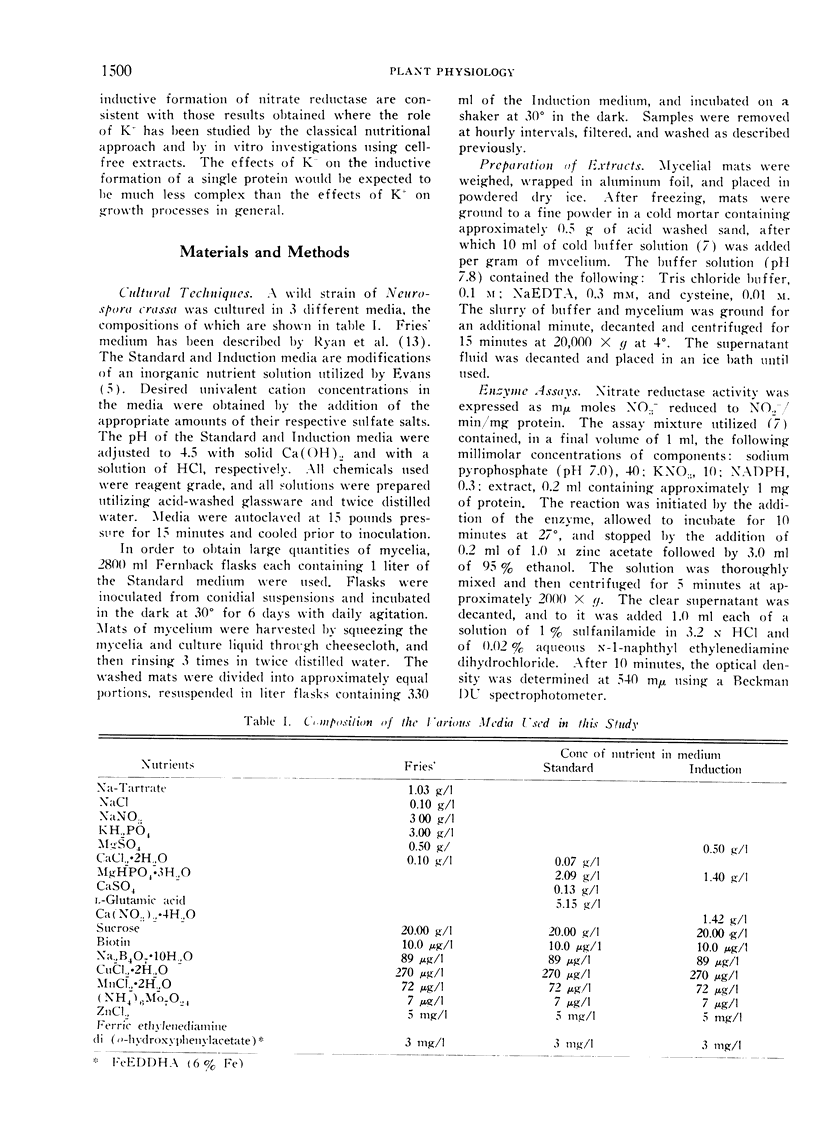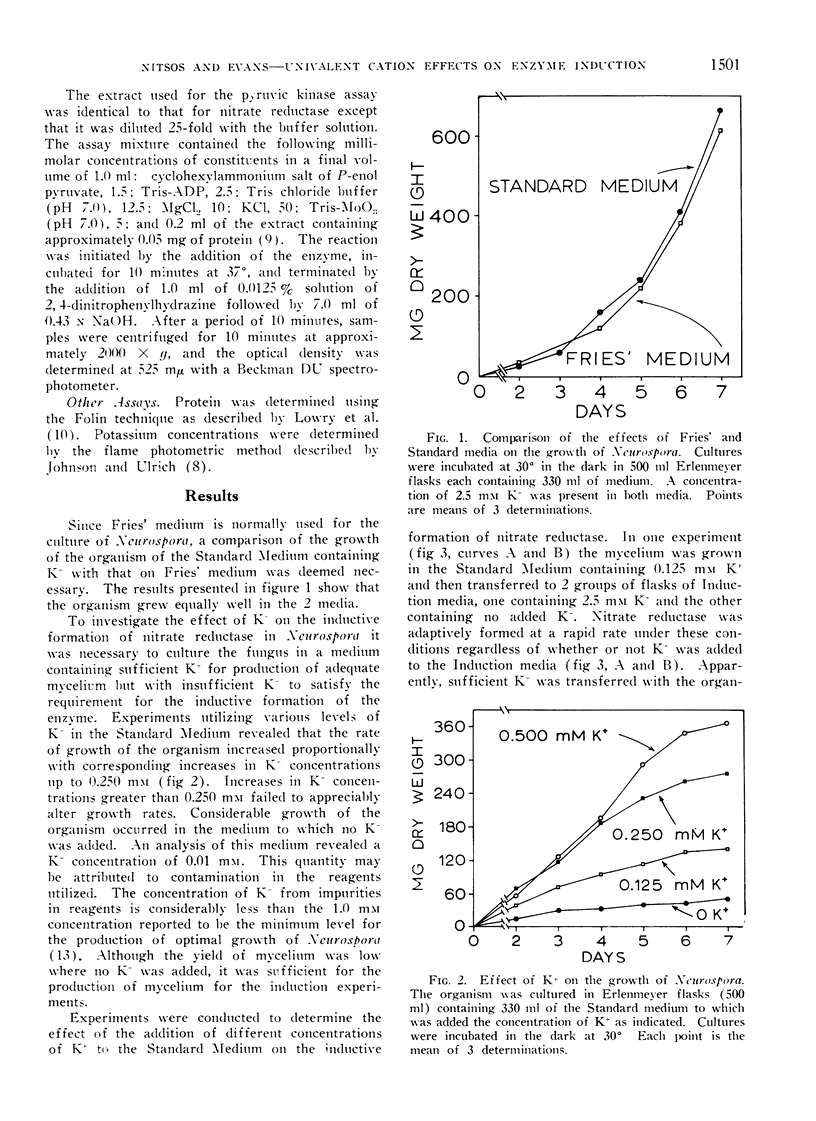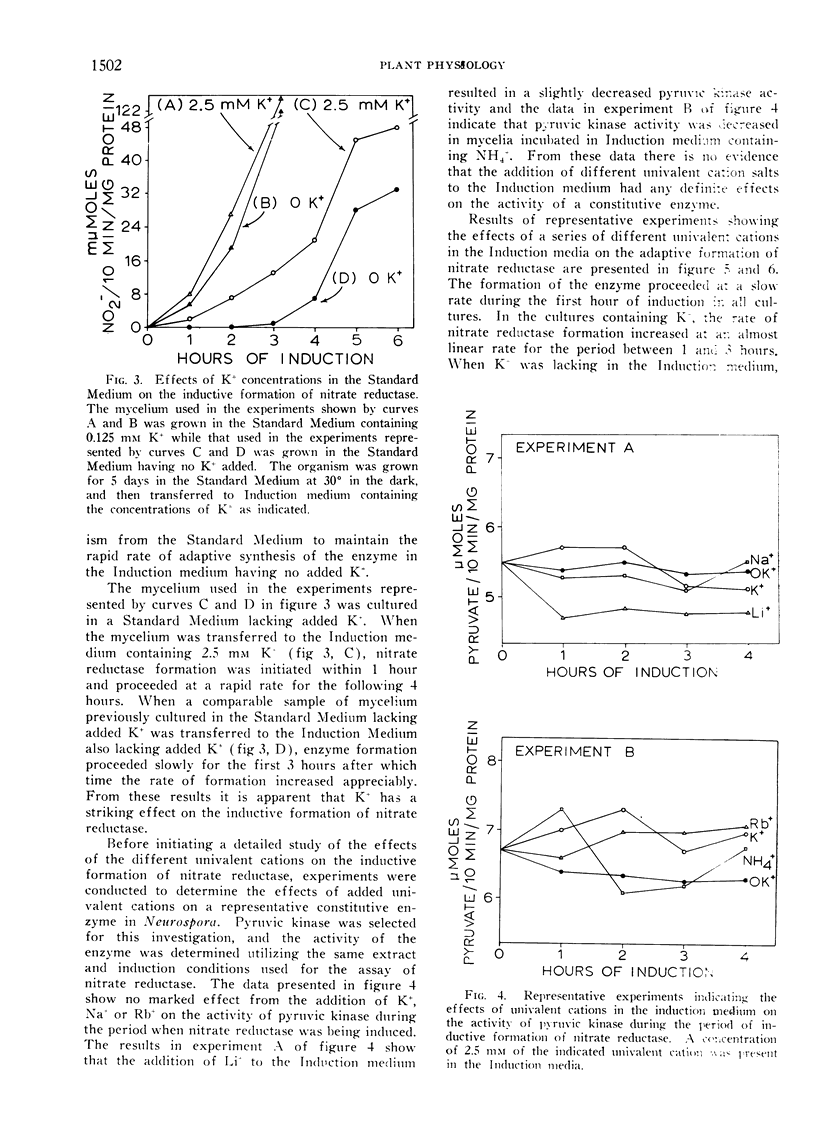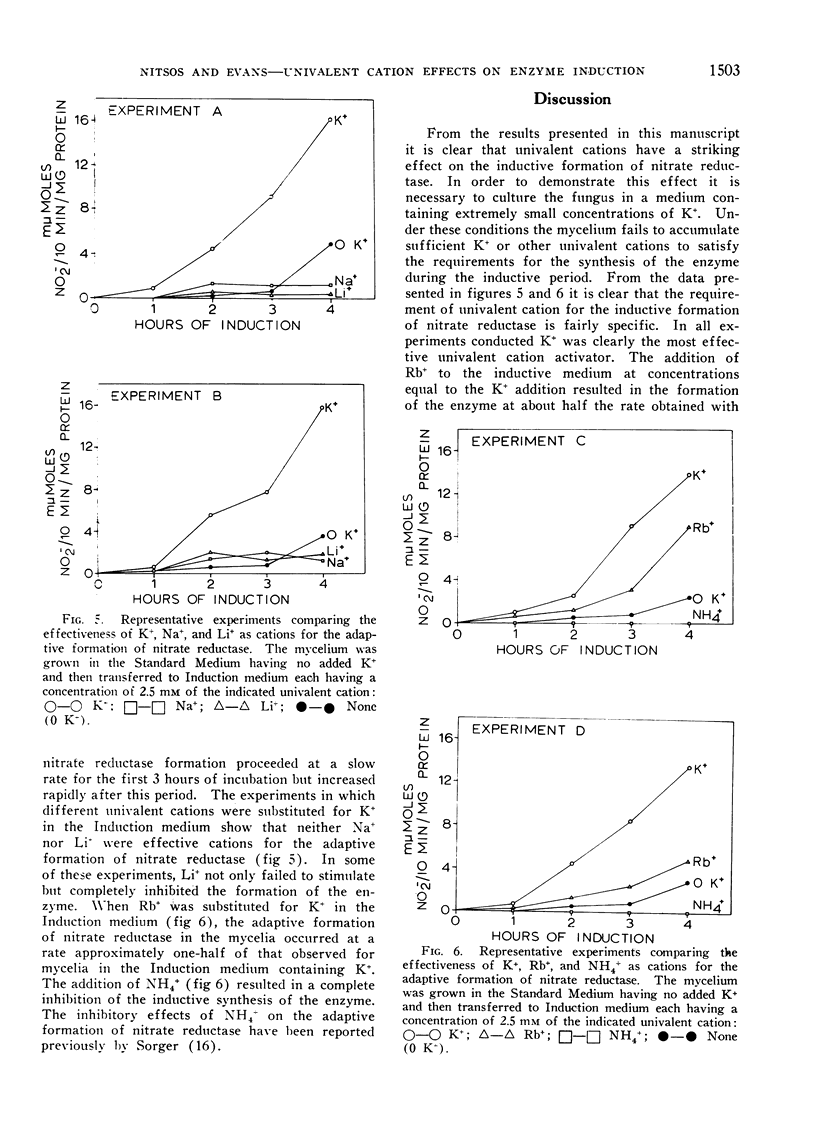Abstract
An investigation has been made to determine the effectiveness of univalent cations as cofactors for the inductive synthesis of nitrate reductase. In these experiments K+ functions more effectively as the univalent cation activator than other univalent cations. Substitution of Rb+ for K+ resulted in enzyme formation at a rate of about one-half of that obtained with K+. Sodium, Li+, or NH4+ either failed to stimulate or completely inhibited the inductive formation of the enzyme. When no univalent cations were present in the induction medium, enzyme formation was delayed for an initial 3-hour period in contrast to the normal one-hour delay in enzyme formation where adequate K+ was present in the induction medium.
During the period of inductive formation of nitrate reductase the activity of pyruvic kinase, a constitutive enzyme, was assayed under conditions where adequate K+ was present. Results indicate that the presence of the different univalent cations in the induction medium had no striking effect on the activity of this enzyme during the induction period.
Full text
PDF